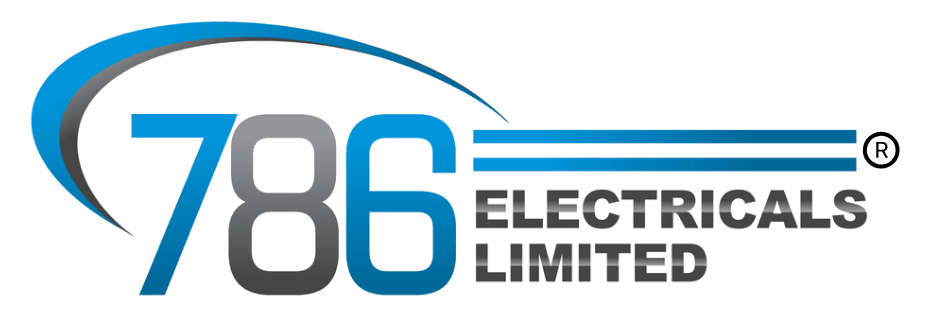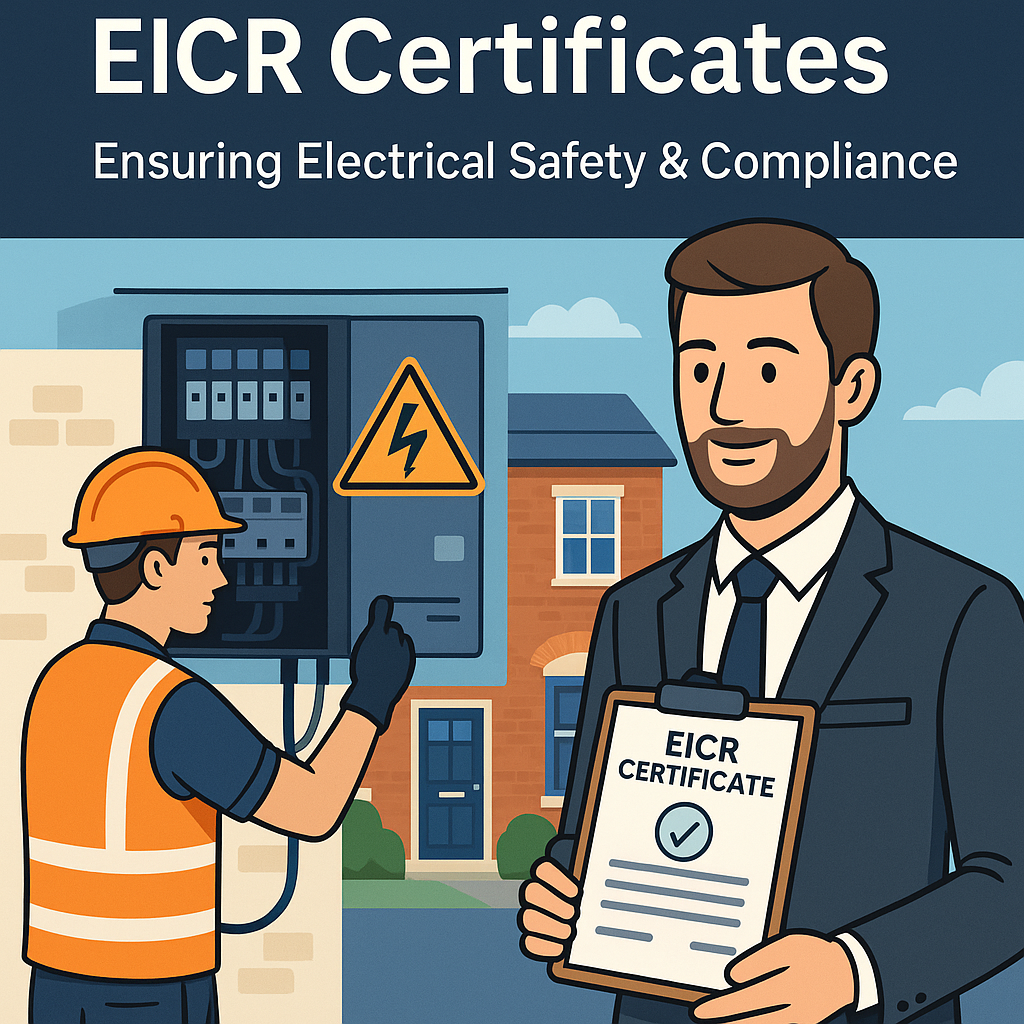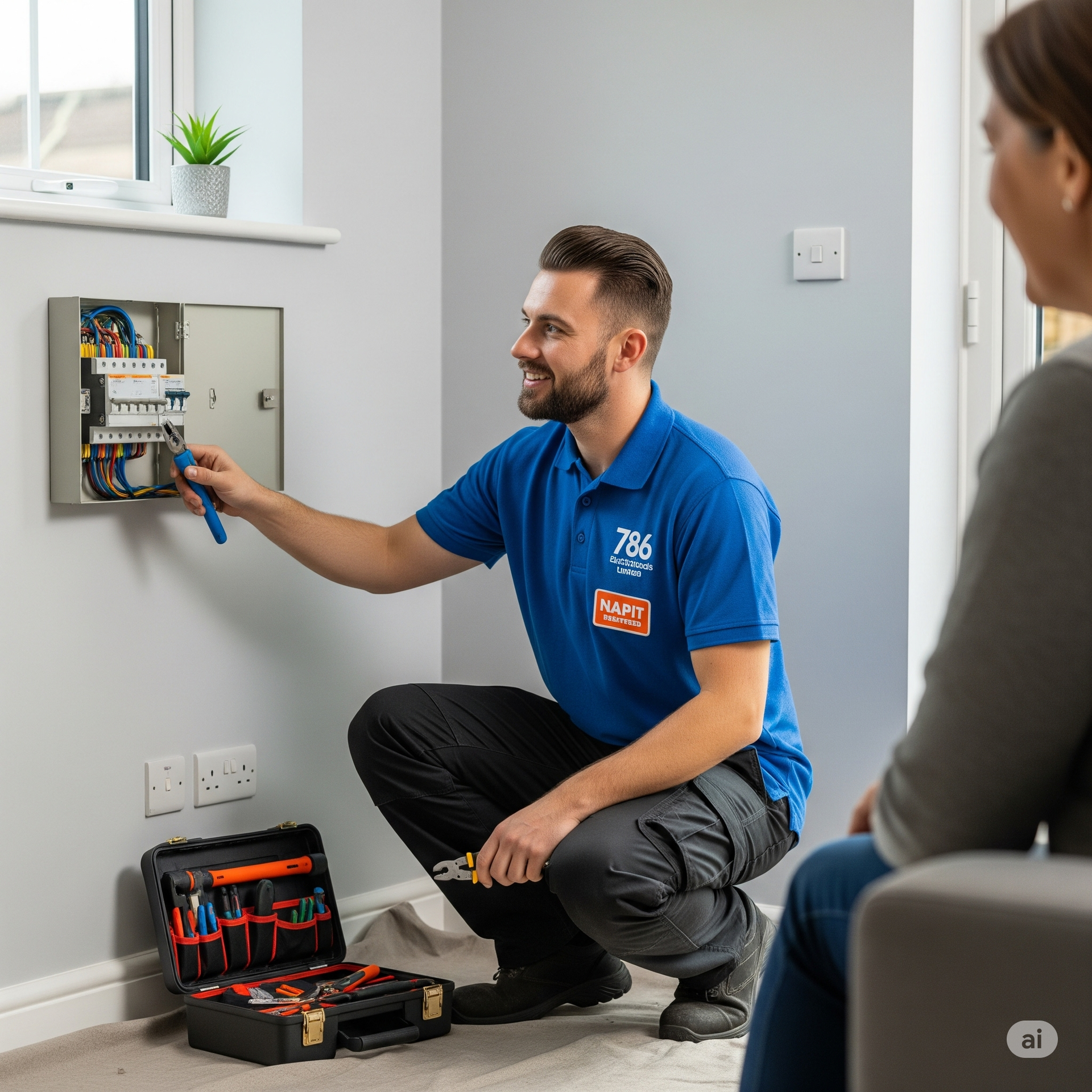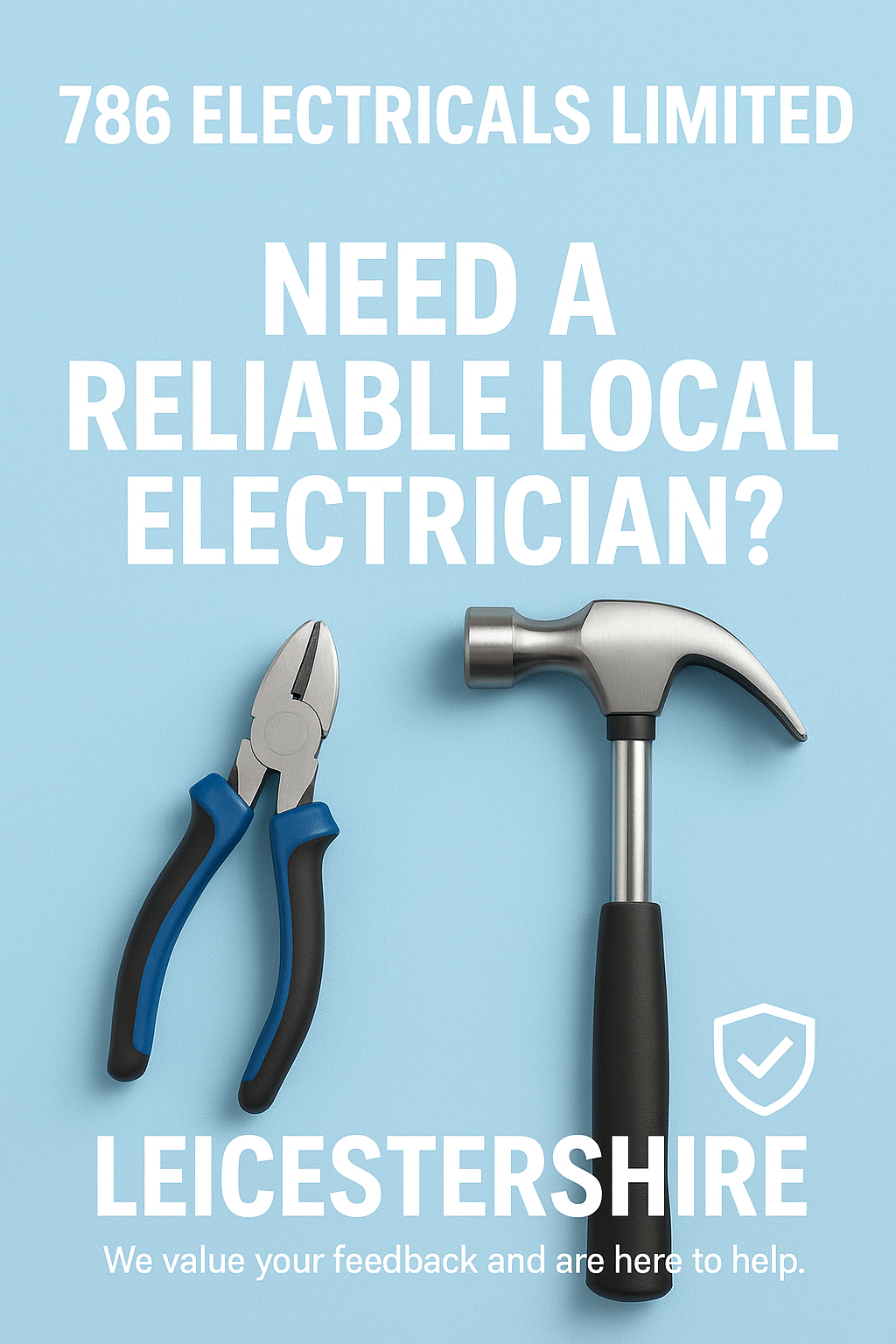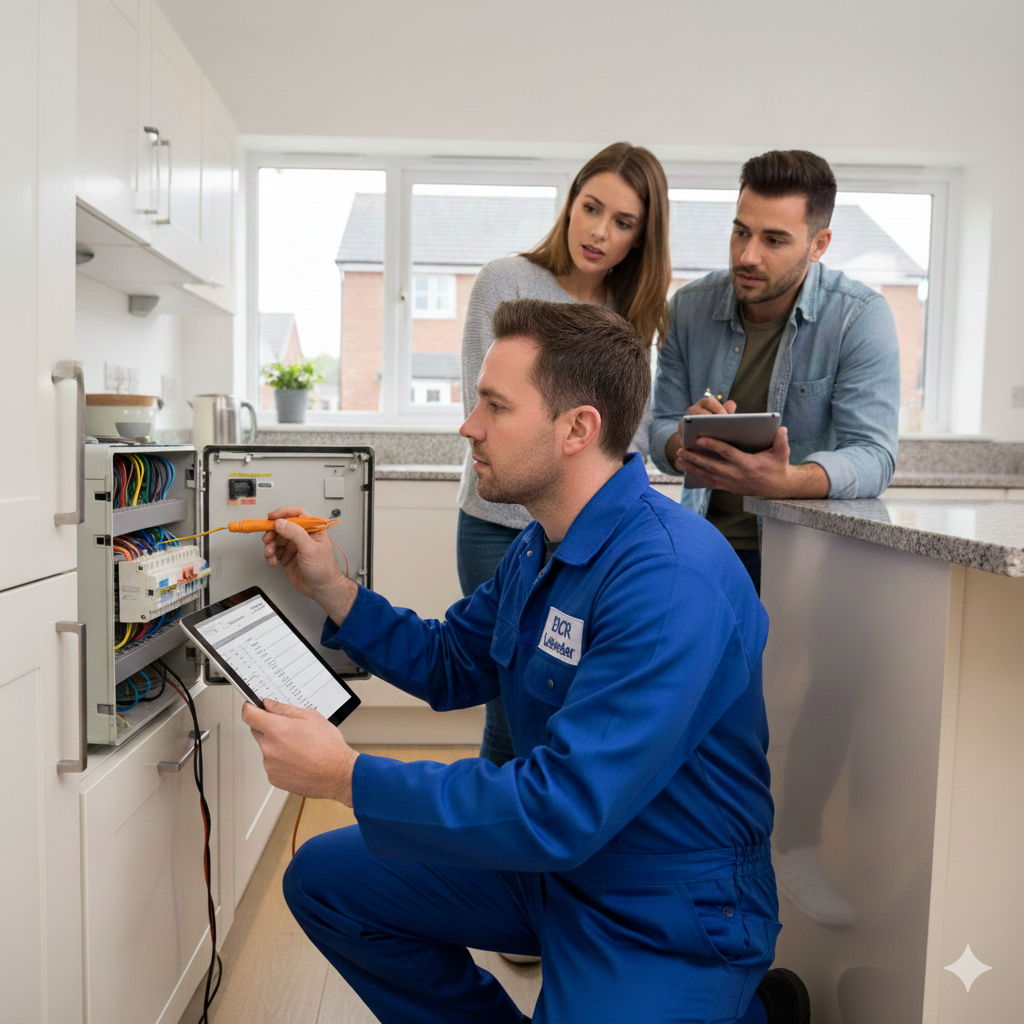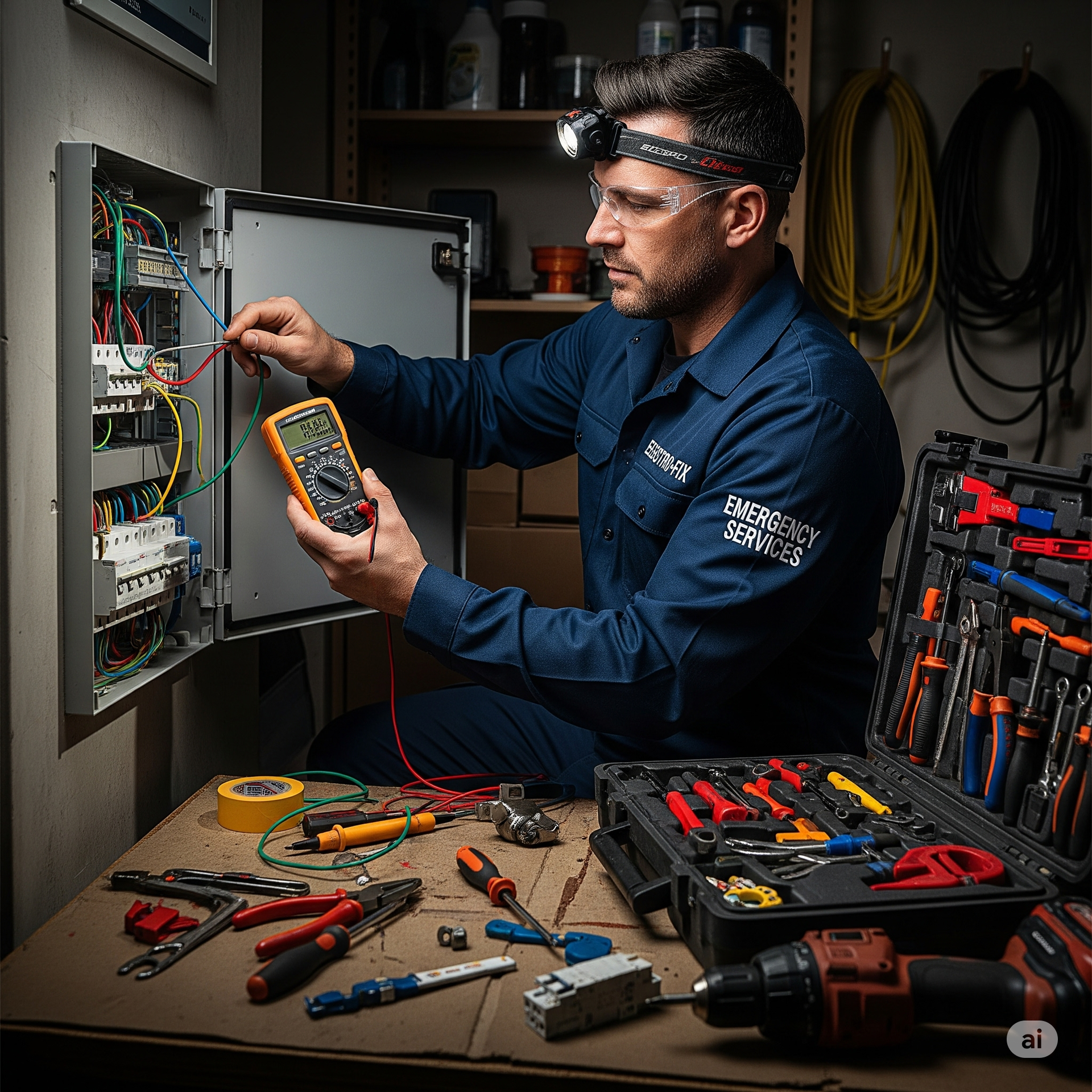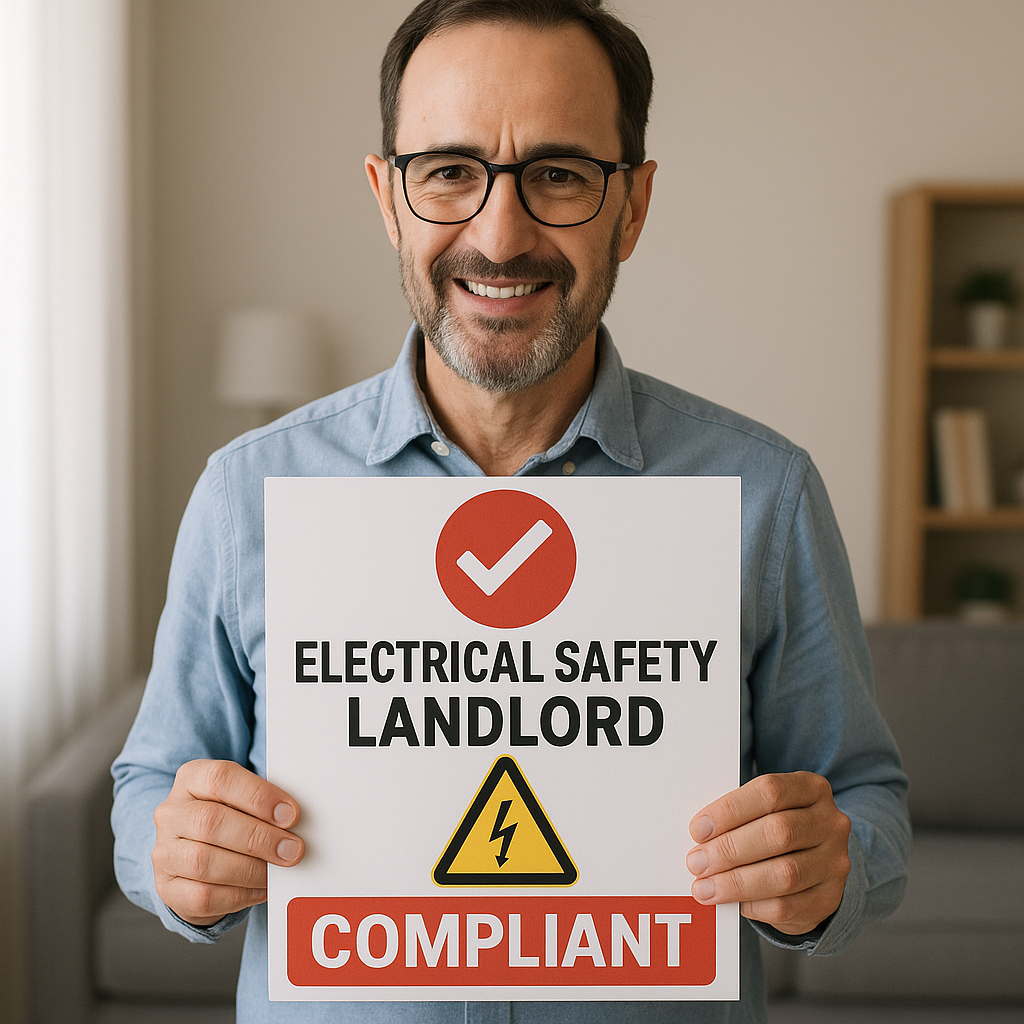⚡ Homeowner’s Electrical Safety Fact Sheet
Electrical Safety Fact Sheet for Homeowners
Here's an authoritative, informative, and approachable Electrical Safety Fact Sheet for Homeowners, including useful safety tips and hyperlinks to trusted UK electrical safety organisations such as Electrical Safety First and NAPIT:
⚡ Homeowner’s Electrical Safety Fact Sheet
Brought to you by 786 Electricals Ltd — Promoting Safer Homes Across the UK
As a homeowner, ensuring your property is electrically safe isn’t just a one-time job — it’s an ongoing responsibility. Electrical issues are one of the leading causes of house fires in the UK, and many of them are preventable with the right knowledge and precautions.
At 786 Electricals Ltd we’re committed to helping you live safer and smarter. Here's what you should watch out for — and what you can do to protect your home and loved ones.
🛑 Top Electrical Hazards to Watch For
- Outdated Wiring
- Homes over 25 years old may have wiring that doesn’t meet modern safety standards.
- Look for signs like frequent blown fuses, flickering lights, or a burning smell.
- Overloaded Sockets
- Avoid daisy-chaining extension leads.
- High-load appliances like heaters or kettles should be plugged directly into a wall outlet.
- DIY Gone Wrong
- Attempting electrical work without proper knowledge is dangerous and illegal in many cases.
- Always hire a qualified electrician (preferably Part P registered).
- Water and Electricity
- Never use electrical devices near water unless they are IP-rated for such use.
- Ensure bathrooms and kitchens have appropriate RCD (residual current device) protection.
- Exposed Wires or Loose Outlets
- Frayed cords, cracked sockets, or exposed wiring should be repaired immediately.
- These are fire and electrocution hazards.
✅ What You Should Be Doing
- Install RCD Protection
- RCDs can save lives by cutting off electricity instantly when a fault is detected.
- Test your RCD every 3 months.
- Book an Electrical Installation Condition Report (EICR)
- Have your wiring inspected at least every 10 years (or 5 years for rented properties).
- Only use a qualified, registered electrician.
- Understand the Signs of Electrical Issues
- Burning smells, buzzing switches, frequent tripping — these are not “normal.”
- These could indicate dangerous faults behind the scenes.
🔗 Trusted Resources for Homeowners
1. Electrical Safety First
- Main Website: https://www.electricalsafetyfirst.org.uk
- Practical Guides: https://www.electricalsafetyfirst.org.uk/guidance/
(Covers DIY safety, portable appliance testing, and more) - Product Recalls: https://www.electricalsafetyfirst.org.uk/product-recalls/
(Searchable database of recalled electrical products) - Home Safety Tips: https://www.electricalsafetyfirst.org.uk/guidance/home-safety/
(Advice on sockets, wiring, appliances, and fire prevention)
2. NAPIT (National Association of Professional Inspectors and Testers)
- Main Website: https://www.napit.org.uk
3. Gov.uk – Electrical Safety Standards (Private Rented Sector)
- Official Guidance: https://www.gov.uk/guidance/electrical-safety-standards-in-the-private-rented-sector
(Full legal requirements for landlords/tenants in England)
4. Register My Appliance
- Official Registration Portal: https://www.registermyappliance.org.uk
(Register white goods to receive direct safety alerts/recalls)
🛠️ When in Doubt, Call the Experts
We know electrical safety can be daunting. That’s why we’re here — to offer clear advice, qualified service, and peace of mind. If you're unsure about anything electrical in your home, don’t take risks. Get in touch with a professional.
07584321989 to Book a Home Safety Inspection EICR
